Driving Rules in Dubai You Should Know
![]() Author : asal | Date : Wednesday 23 April 2025 10:26
Author : asal | Date : Wednesday 23 April 2025 10:26
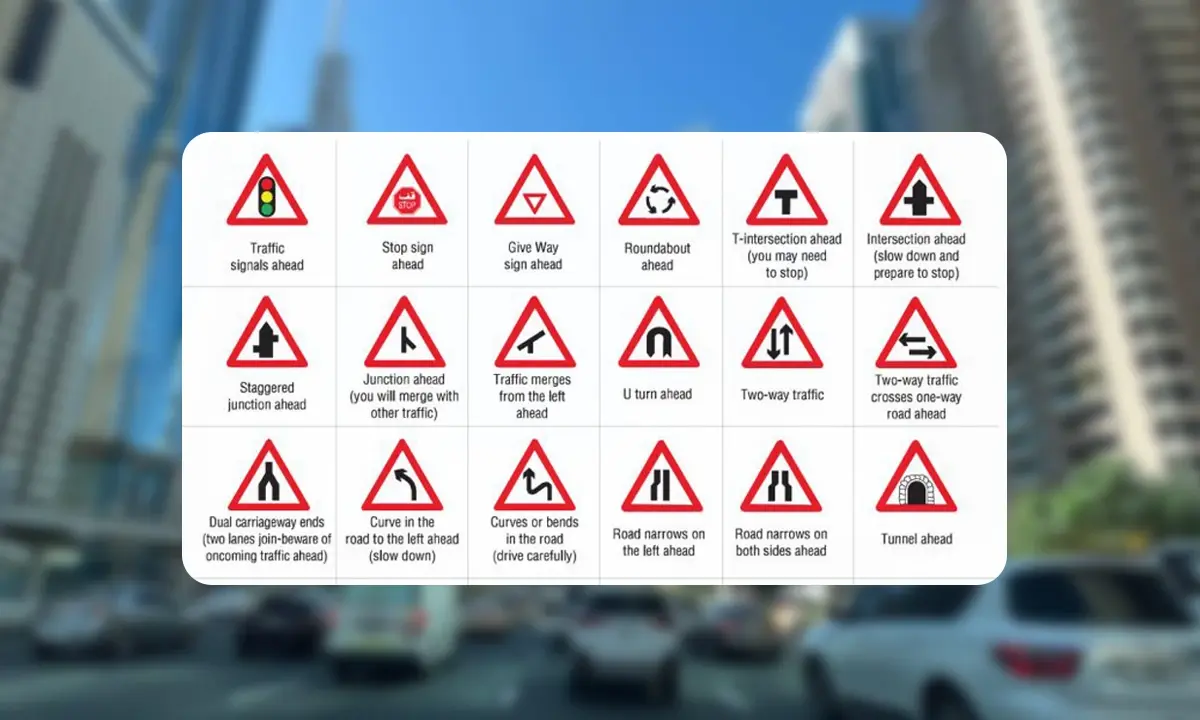
Here, we're going to review the latest updates on driving rules in Dubai. As you prepare for travel, remember to maintain a safe following distance due to the busy roads in this bustling tourist and business destination. It's crucial to avoid using mobile devices while driving, riding electric scooters, or even hands-free systems, with penalties including fines and black points on your license. Always wear your seatbelt to comply with local laws and avoid fines. Stay with us to check all the necessary rules before you travel, ensuring a safe and enjoyable journey in Dubai.
Dubai's traffic laws and crimes
They will respect you if you follow their rules; they are clever people, but there are boundaries of conduct in UAE culture that you must accept if you want to live there.
- Knowing the norms and regulations of Dubai, as well as what is and is not acceptable, is the key to living a pleasant and easy life in the city of Dubai.
- According to the latest changes in Dubai's traffic laws, the legal driving age in Dubai has been lowered from 18 to 17. This change allows individuals aged 17 and above to apply for a driving license from March 29, 2025. An international driver's license or a driver's license from an accepted country is required. It is also necessary to have a car insurance certificate.
- In Dubai, all automobiles drive on the right side of the road.
- Front-seat passengers under the age of 13 are not permitted. In addition, children aged 4 to 8 must ride in a child seat.
- Everyone in the car should wear a seat belt, and you can only converse on your phone via the car's Bluetooth.
- A new traffic signal has been installed for tram safety, and failure to obey the red light at tram intersections is punishable by a fine of up to 30,000 dirhams.
- A dedicated tram service for students has been established to ensure their safety and maintain street security.
- Dubai has a penalty points system for traffic violations. In addition to fines, offenders may receive penalty points. Accumulating 24 points within a year can result in a suspension of your driving license for up to three months.
- Drivers can reduce penalty points by attending approved driver training courses, which require approval from the Dubai Traffic Police.
- Along with the new helmet requirement, Dubai has specified that electric scooter riders must be aged 16 or above to operate e-scooters legally on the roads. Additionally, to ensure the safety and compliance of all e-scooter users, the Roads and Transport Authority (RTA) mandates that riders attend a training course. After completing this course, riders must pass an online test to obtain their RTA e-scooter license. This process is designed to equip riders with the necessary skills and knowledge to navigate Dubai safely. Failure to adhere to these regulations can lead to fines and restrictions on your ability to use e-scooters in the city.
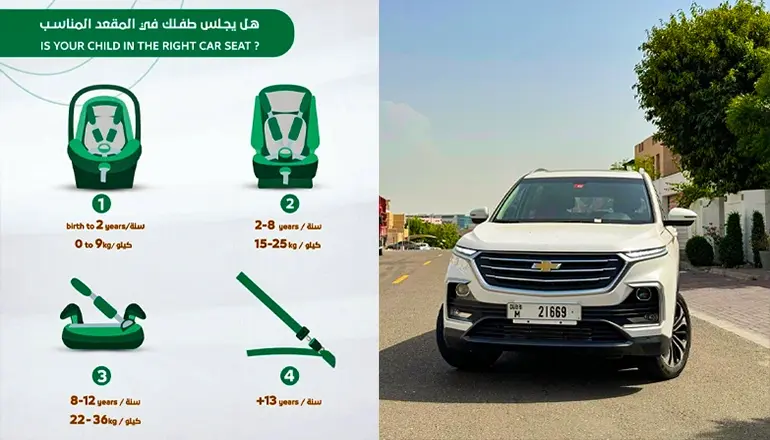
What is the Most Important Driving Rule in Dubai?
The most important driving rule in Dubai is adherence to traffic signals and speed limits. This is crucial for ensuring the safety of all road users. In particular, obeying the red light at intersections, especially tram intersections, is emphasized, as violations can result in heavy fines and penalties. Additionally, maintaining the correct speed according to posted limits helps prevent accidents and ensures smooth traffic flow.
Injuries in Dubai, Dubai Driving Rules
In Dubai, every accident, regardless of its size, must be reported to the police for investigation and documentation. The person not at fault in the accident receives a green card, which is reviewed before being sent to the insurance company for processing claims.
Driving under the influence of alcohol is strictly prohibited in Dubai. The legal alcohol limit for drivers is zero, meaning any amount of alcohol in the system is illegal. Despite this law, some individuals still choose to drive while intoxicated. Those caught doing so face severe penalties.
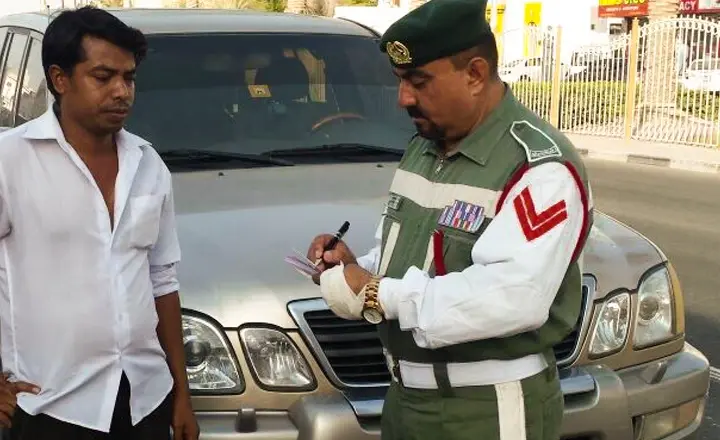
Liquor and Driving Laws in Dubai, Rules to Know
In Dubai, non-Muslim residents can legally purchase alcohol for home use and consume it in licensed establishments. Tourists can also obtain a one-month temporary liquor license for a nominal fee from two approved liquor wholesalers. Upon obtaining the license, tourists are provided with a code of conduct and must acknowledge that they understand the rules regarding the purchase, transportation, and consumption of alcohol in Dubai.
In other emirates of the UAE, non-residents are not eligible for liquor licenses. However, tourists and visitors can still purchase and consume alcohol in licensed establishments such as hotels, restaurants, and clubs.
It is crucial to note that drinking or being under the influence of alcohol in public is a serious offense under UAE law, and offenders can face severe penalties. The legal drinking age in Abu Dhabi is 18, but a Ministry of Tourism policy prohibits hotels from serving alcohol to anyone under the age of 21. In Dubai and the rest of the UAE, except Sharjah, the legal drinking age is 21. Consuming alcohol in Sharjah is strictly prohibited.
Additionally, passengers under the influence of alcohol who transit through the Emirates may be detained if found intoxicated.
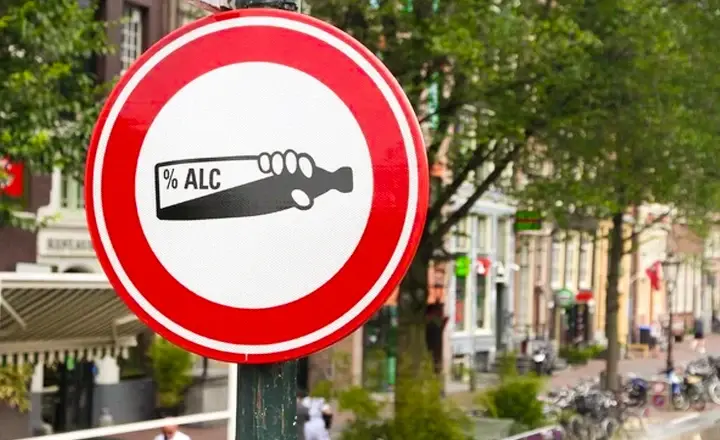
Dirty car in Dubai, Important Things to focus on
In Dubai, where sandstorms are frequent, keeping your car clean is crucial. If a car is found to be excessively dirty, the owner can face penalties, including fines of up to Dh3000 and even detention.
It is important to note that while sitting in your car with the engine running can lead to fines, improper car cleaning can also result in penalties. Washing your car at home is discouraged, as it can lead to environmental hazards; dirty water can flow into streets and drains, causing pollution.
For those renting cars, such as through Dubai airport services, returning a vehicle in a dirty condition can incur additional charges. To avoid these issues, it's recommended to use professional car washes located at gas stations or shopping center parking lots. These facilities are equipped to handle car cleaning properly and help you maintain your vehicle's cleanliness without risking fines or environmental damage.
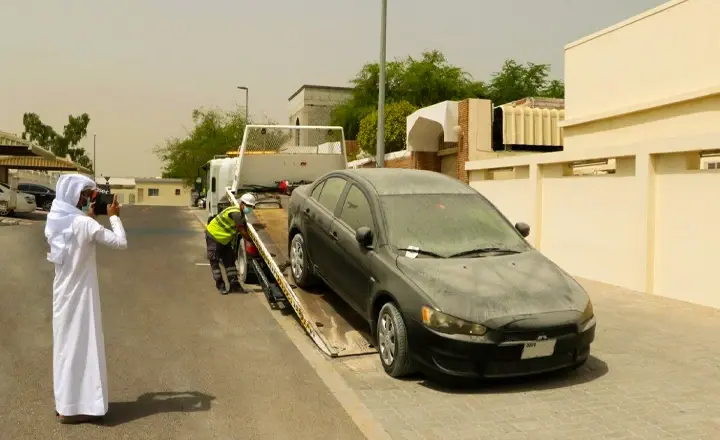
Read More:✔️ Is car rental business profitable in Dubai?
Seatbelt rules in Dubai
Seatbelts are mandatory for all passengers in vehicles traveling on highways, both within and outside urban areas, in Dubai. This requirement applies to drivers, front-seat passengers, and back-seat passengers. Everyone in the vehicle must wear a seatbelt, making it one of the most critical driving rules in Dubai. This regulation is strictly enforced to enhance safety for all road users.
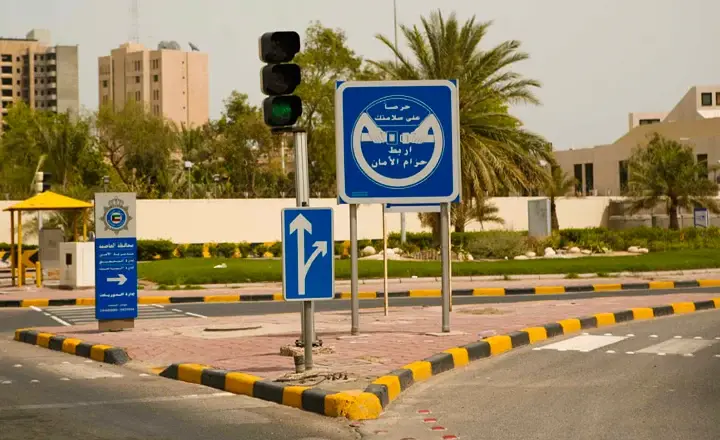
The speed limit in Dubai
In Dubai, the enforcement of speed limits is a key measure to curb reckless driving and ensure road safety. It is essential for drivers to be aware of and adhere to these limits to prevent accidents. The speed limits in Dubai are strictly enforced, and exceeding them can lead to severe penalties. This is one of the crucial road rules in the city.
- Freeways: The speed limit is typically between 100-120 km/h, with a minimum speed requirement of 60 km/h.
- Urban areas: The speed limit is set at 60 km/h.
- Residential areas: The speed limit is 40 km/h.
Complying with these speed limits helps maintain safety for all road users and is a fundamental aspect of responsible driving in Dubai.
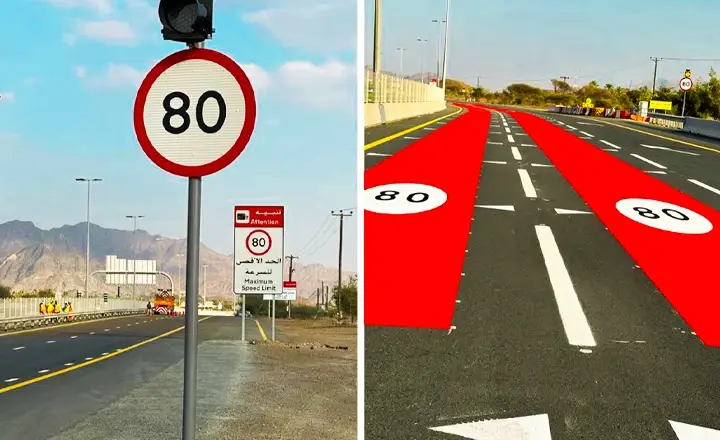
Right of way over another property in Dubai
Understanding and adhering to the right-of-way rules in Dubai is crucial for preventing conflicts with other drivers. Here are the key points to remember:
- Crossing Points: Vehicles approaching from the opposite side of a crossing point have the right of way. It is essential to yield to these vehicles.
- Roundabouts: When entering a roundabout, drivers must give way to vehicles already in the roundabout. This means waiting for a clear gap before entering.
- Give-Way Signs: At intersections marked with a give-way sign, you must yield to vehicles on the cross street. This includes allowing vehicles coming from your right to proceed first, especially if there are no other signs or markings present.
By following these right-of-way rules, you can navigate Dubai's roads safely and avoid potential accidents or disputes with other road users.
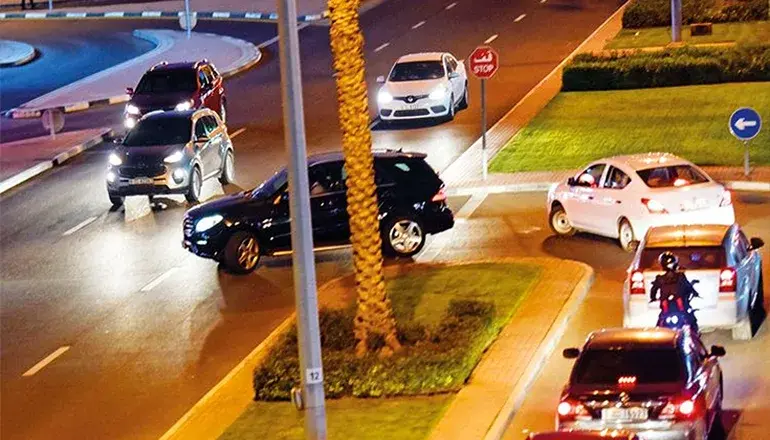
Seven Traffic laws and regulations in the UAE
- Amended Federal Traffic Law:
The UAE's amended federal traffic law, effective July 1, 2017, aims to protect road users and reduce traffic casualties. The goal is to decrease traffic fatalities from approximately 6 per 100,000 people to 3 per 100,000, in line with Vision 2021.
- Issuing and Renewing a Driver’s License:
Ministerial Resolution No. 177 of 2017 specifies the conditions for issuing and renewing driver's licenses. For individuals aged 21 and older, the initial license is valid for 2 years. Upon renewal, it is valid for 10 years for citizens and GCC nationals, and 5 years for other nationalities. For those under 21, the license is initially valid for one year.
- Traffic Control Rules and Penalties:
Ministerial Resolution No. 178 of 2017 outlines various safety measures and penalties, including mandatory seat belts for all passengers and penalties for reckless driving, driving under the influence, and using mobile phones while driving. For example, reckless driving results in a fine of AED 2,000, 23 black points, and vehicle impoundment for 60 days. Exceeding the speed limit by 80 km/h incurs a fine of AED 3,000, 23 black points, and vehicle impoundment for 60 days.
- Seat Belt Regulations and Child Safety:
The law mandates seat belts for all occupants, including rear seat passengers. Children up to four years of age must be in a child safety seat. Violators face a fine of AED 400 and four black points.
- Driving Under the Influence:
Drivers caught under the influence of drugs or alcohol will have their license suspended for one year from the date of the verdict, with the court determining the fine and/or jail term.
- Distractions and Mobile Phone Use:
Using phones while driving or engaging in other distractions results in a fine of up to AED 1,000, vehicle impoundment for up to 30 days, and four black points.
- Speeding Penalties:
Stringent penalties are in place for speeding. Exceeding the speed limit by 80 km/h results in a fine of AED 3,000, 23 black points, and vehicle impoundment for 60 days.

Read More:✔️ What are the Car Rental Rules in Dubai?
Last Word
When there are several well-known rules in Dubai and other parts of the United Arab Emirates, some of these laws and limitations are frequently disobeyed, and travelers who are unaware of them may find themselves in trouble while traveling in Dubai. If you do these things in Dubai or Abu Dhabi, you might be jailed, fined, or even deported! So it's best to familiarize yourself with these weird restrictions before visiting, so you don't get caught by the authorities in this nation.
FAQ
let’s answer some question
Is it difficult to drive in Dubai?
The traffic is swift, and the motorways may be enormous and congested with various users ranging from quick vehicles to massive lorries. As a result, driving may be challenging for people unfamiliar with Dubai's driving restrictions in general. If you're uncertain about navigating the roads, opt for the rent a car with a driver in Dubai service for a stress-free experience.
Is Dubai left-drive or right-hand drive?
In Dubai and the UAE, you drive on the right side of the road.
Can I drive in Dubai as a tourist?
Yes, you can.
Can I drive in Dubai without a visa?
To visit Dubai, you must have a visa. As a result, driving in Dubai requires a visa. For convenient mobility, consider using a car rental in Dubai Mall during your stay.
Which countries accept UAE driving licenses?
- Algeria
- Armenia
- Austria
- Jordan
- Kazakhstan
- Kuwait
- Latvia
- Lebanon
- Lithuania
- Luxembourg
- Macau
- Malta
- Malaysia
- Mexico
- Montenegro
What are the speed limits in Dubai?
Speed limits are strictly enforced in Dubai. On freeways, the speed limit is 100-120 km/h (with a minimum speed of 60 km/h), in urban areas, it's 60 km/h, and in residential areas, it's 40 km/h.
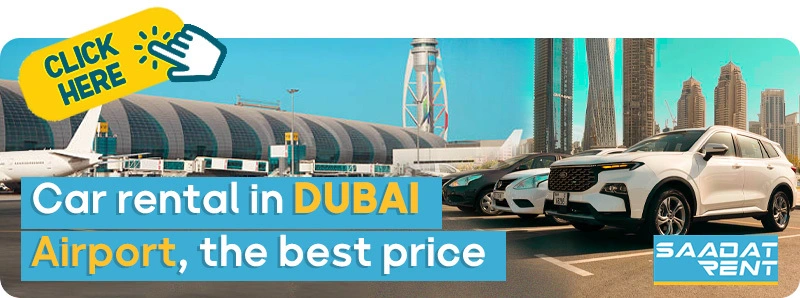
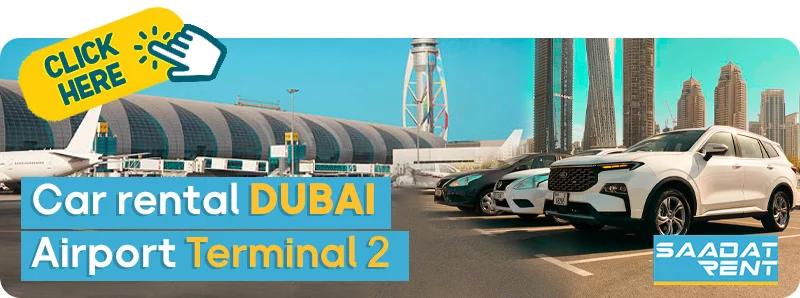
.webp)



